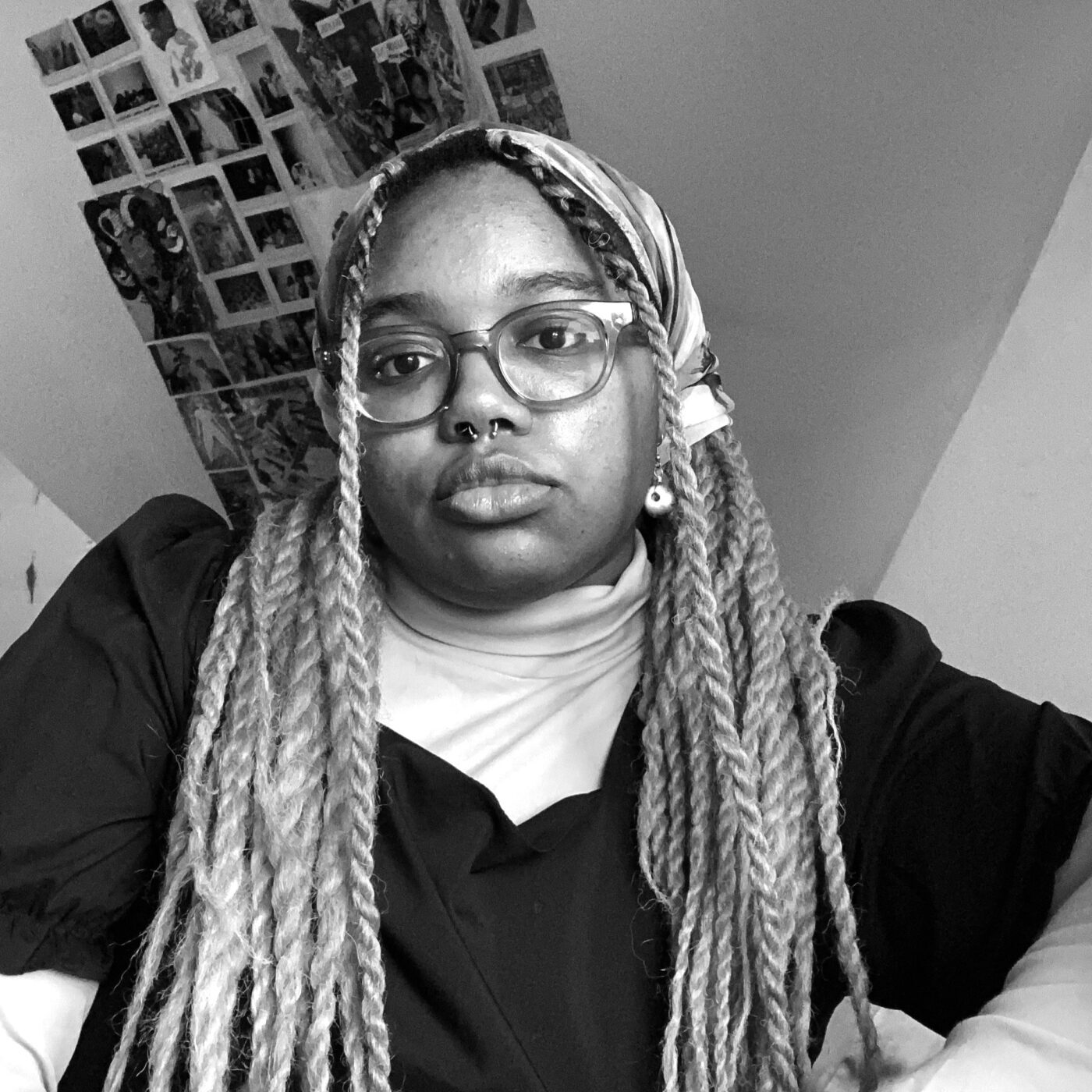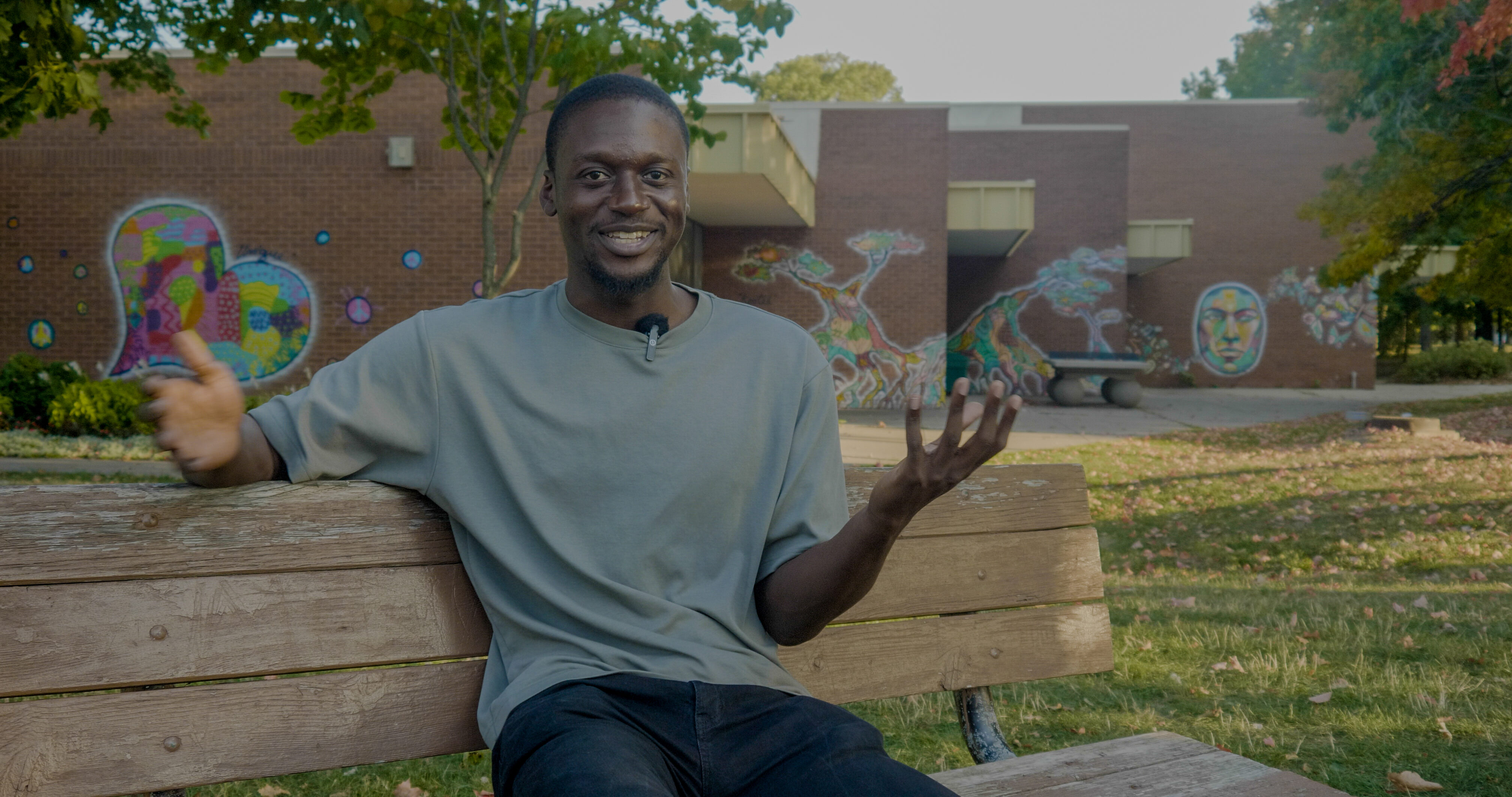THE GREEN LINE'S
CHANGEMAKER INTERVIEW
Urban planning for your community with plazaPOPS' Naziha Nasrin
For one of our Changemakers newsletters, we spoke with urban planner Naziha Nasrin about how she builds community and celebrates suburban culture through her work with plazaPOPS.

NAZIHA NASRIN AT A PLAZAPOPS EVENT IN WEXFORD HEIGHTS.
📸: KAT RIZZA.

Adele Lukusa
A graduate of TMU, Kitchener native enamoured with Toronto and lover of Jamila Woods. Currently working on supporting mutual aid efforts and unpacking the nuances of Black haircare.
Aug. 7, 2024
Naziha Nasrin was doing her masters in urban planning at the University of Toronto when she was first introduced to plazaPOPS.
Daniel Rotsztain, the initiative’s creator, was guest-lecturing in one of her classes. After hearing about the events being hosted in the neighbourhood she calls home, Naziha was all in.
For the uninitiated, plazaPOPS sets up pop-up community events in the parking lots of plazas around Wexford Heights, hence its name. Programming is informed by residents, and adjusted according to their feedback. A year after working as a community-based researcher for plazaPOPS, Naziha is now the organization’s program director, and helps organize amazing events like our upcoming pedestrian safety popup.
What is it about plazaPOPS that made you realize it was for you?
It celebrates suburban communities. Communities that are underinvested spaces — not underserved but underinvested. And that's why I was like, "This is amazing." plazaPOPS is something that celebrates community and diversity in Scarborough. The most multicultural part of Toronto is our inner suburbs, like Scarborough and Etobicoke. You don't see the diversity as much when you're in the downtown core.
We’re intentional about the places where we do our installations. Because you can easily do the stuff that we do in downtown because it's happening there all the time. But for us, it's harder. There are more barriers, but it's so important to have this here because people need it and people want it, and it's about celebrating local culture and community.
What has been the biggest lesson working with plazaPOPS?
I think one of the biggest things I've learned is being able to adapt to the space. When we are actually building our installations, so many hurdles can come up. For example, there's construction on Lawrence right now and we're like: Okay, how do we do this and build our site? How are we going to get people to come out when there's so much noise? How do we work around this? So, we reached out to the contractor and the City and asked, "Hey, can you please finish this side of Lawrence first, because we're doing this event?" We talk to the plaza owner, we talk to the local restaurant owners, and say "Hey, we want to do this." So, we’re really bringing people together. Because, as a planner, that is your job. You're a little negotiator at the end of the day, making sure that different stakeholders are interacting with each other and they're okay with the plans and what's happening.
As planners, we build cities. And I feel that in a way, with plazaPOPS, I'm building my own small city for the community that I live in.

LOYAL PATRONS OF KEITH LEE-APPROVED SOMALI RESTAURANT SAHAN SIT AND CHAT AT COLONY PLAZA, ONE OF PLAZAPOPS’ WEXFORD BLOOMS 2GETHER INSTALLATIONS.
📸: KAT RIZZA.
As someone from Wexford Heights, what makes this community so special? And how does it feel to serve a community you were raised in?
If you drive down Lawrence, you can find five different shops from five different countries all in one strip mall. And in the evening time, you'll see little chairs out in the parking lot where uncles are sitting around, sipping tea and talking about politics. And that's a culture — but that's not something that people recognize.
For instance, there's Sahan, a Somali restaurant, and right next to it is Cafe De Paan, which is a Pakistani restaurant. Even though they're two different cultures, there's that similarity of gathering, celebrating community and coming out together. I think that's what makes this unique and an amazing learning opportunity. We’re so successful with our programming because we meet the community where they are, and cater to the people that live here.
|
Fact-Check Yourself
Sources and
further reading
Don't take our word for it —
check our sources for yourself.
Care about our city, but don't know how to make it better? Sign up for simple, step-by-step guides to solving problems in your neighbourhood — one small action at a time.
